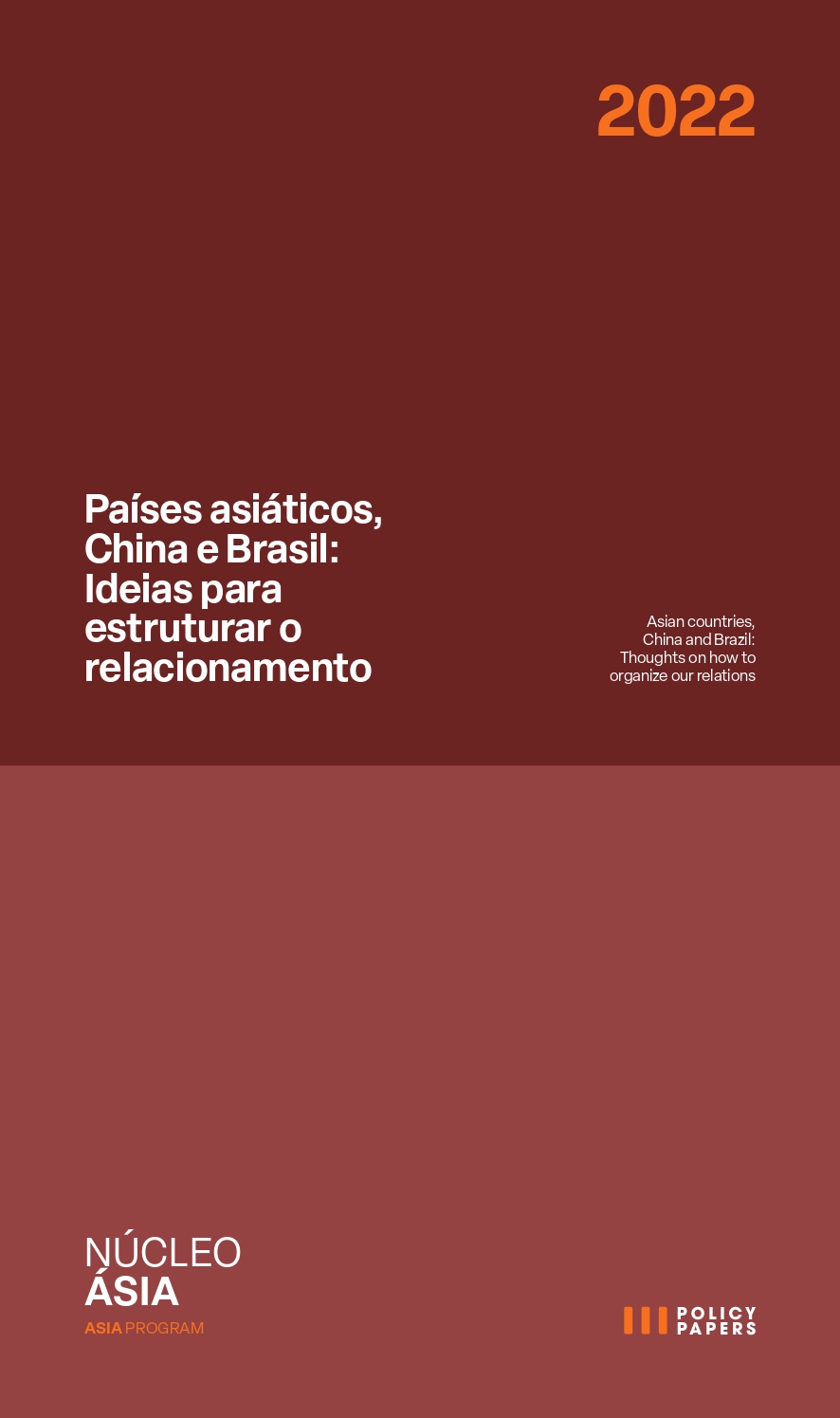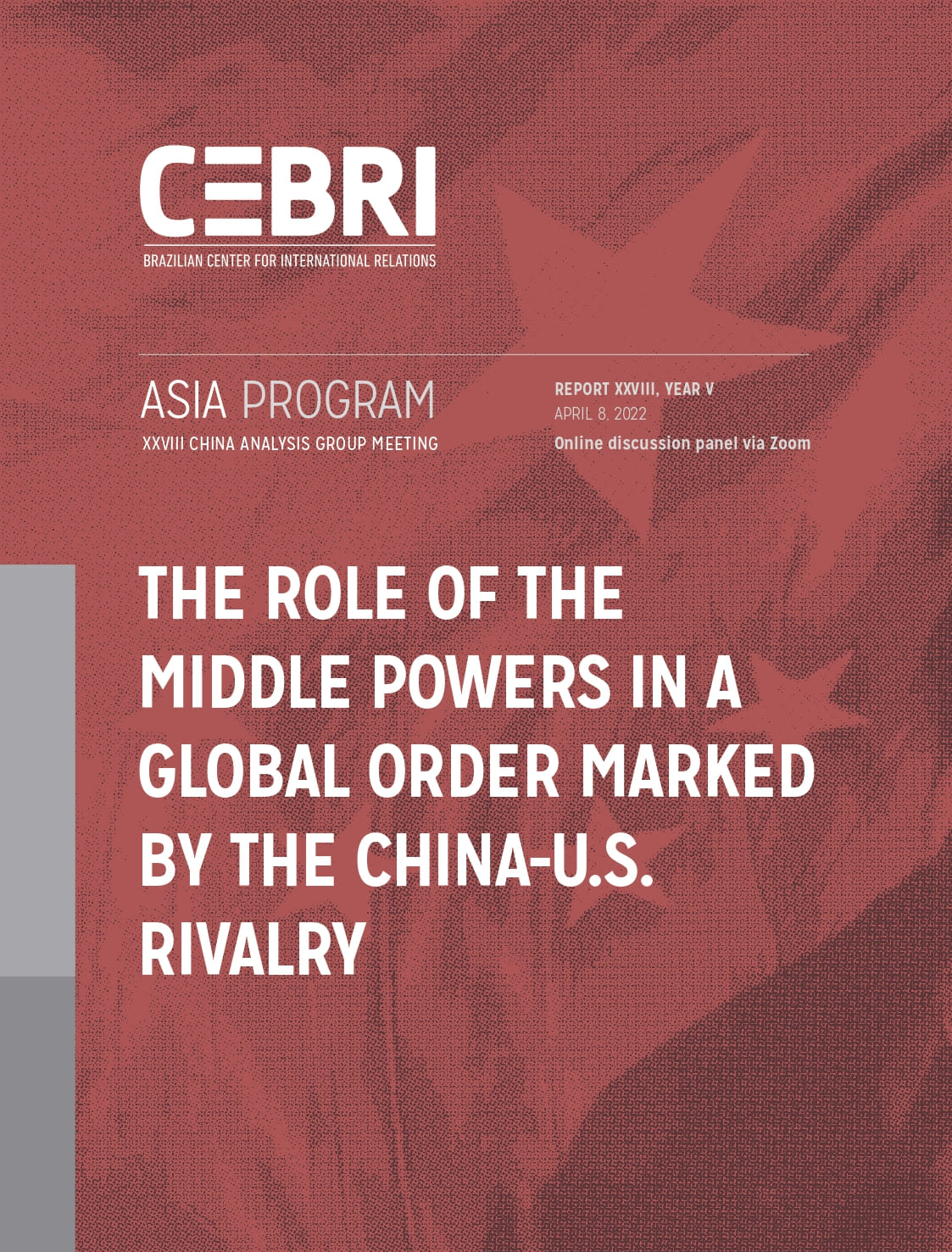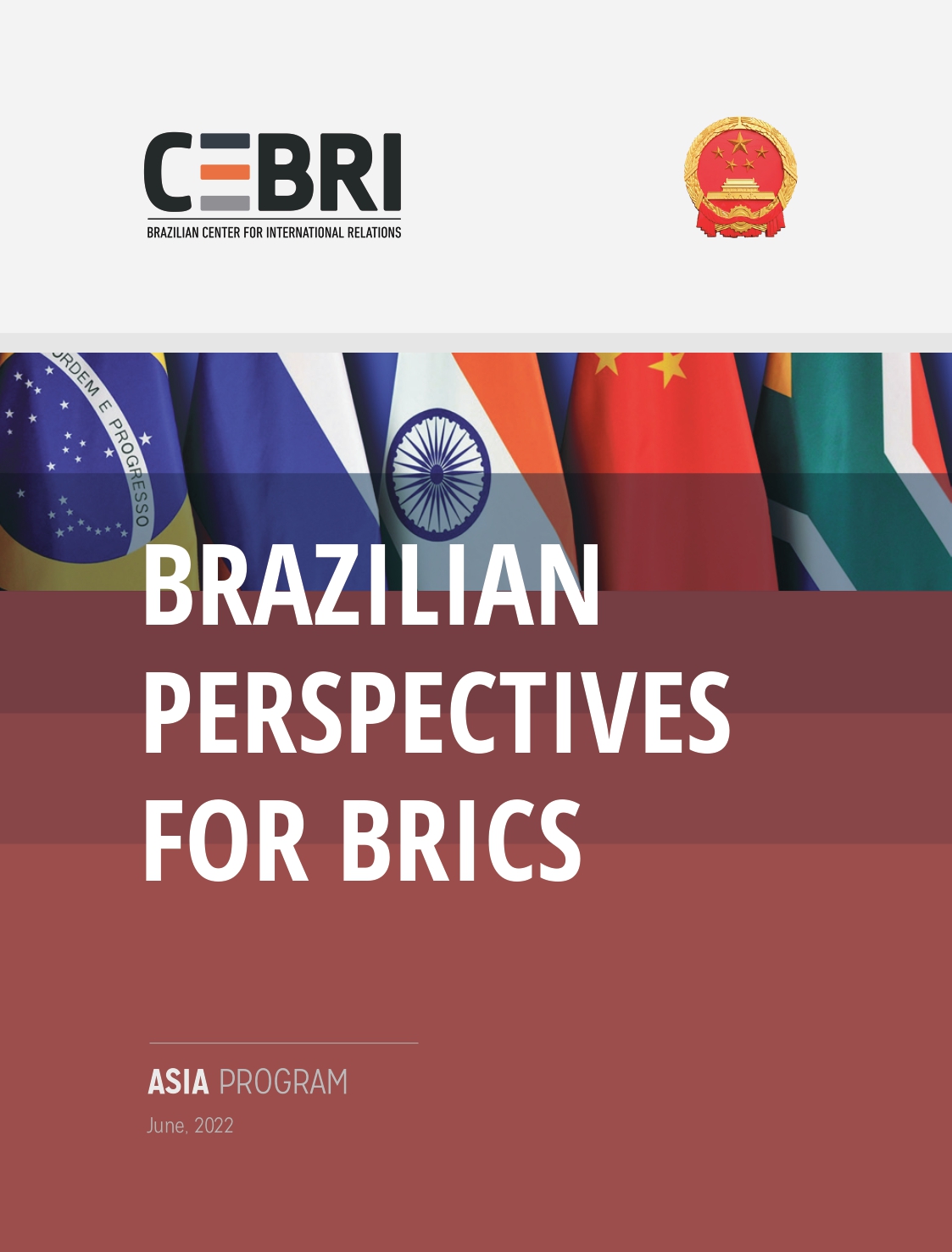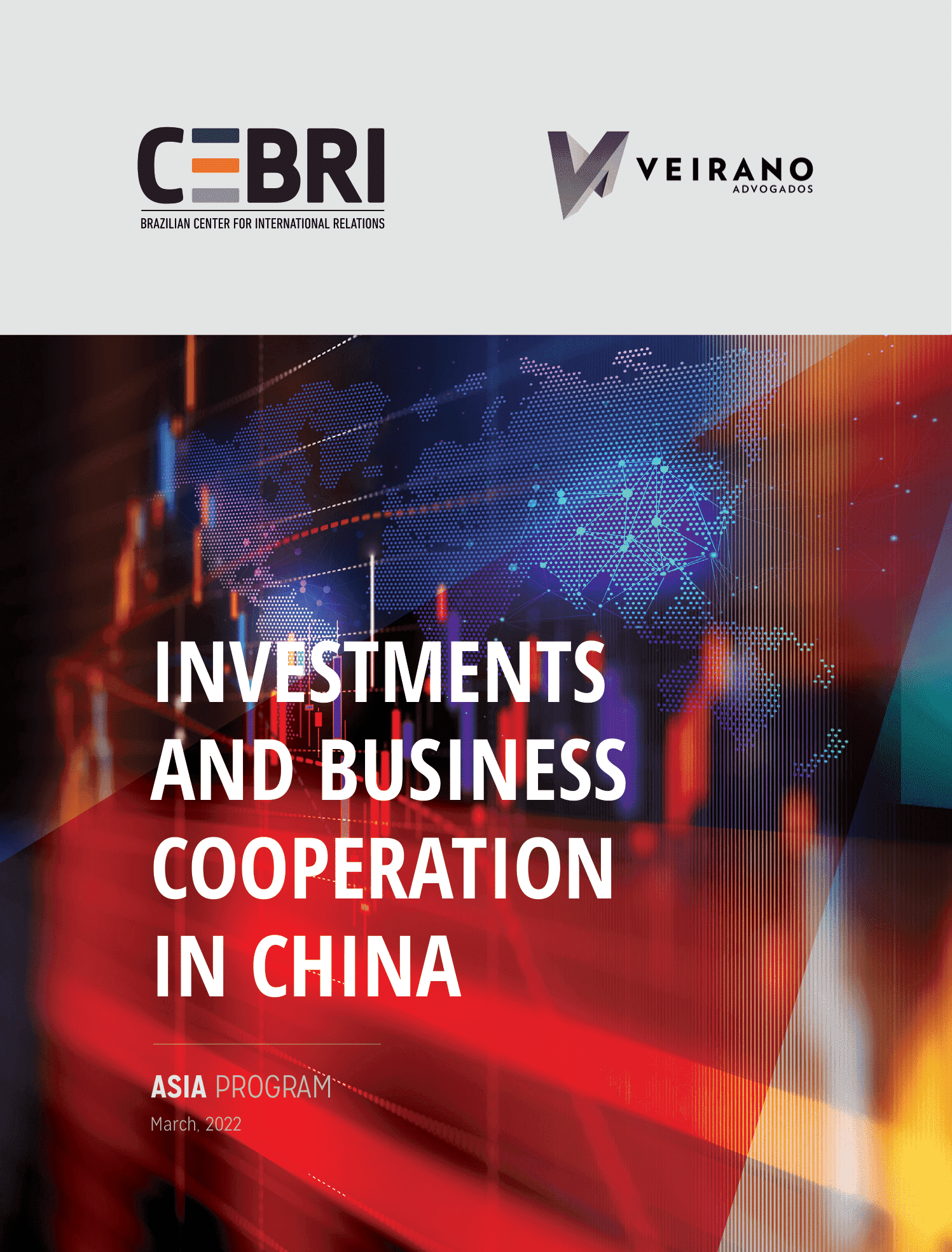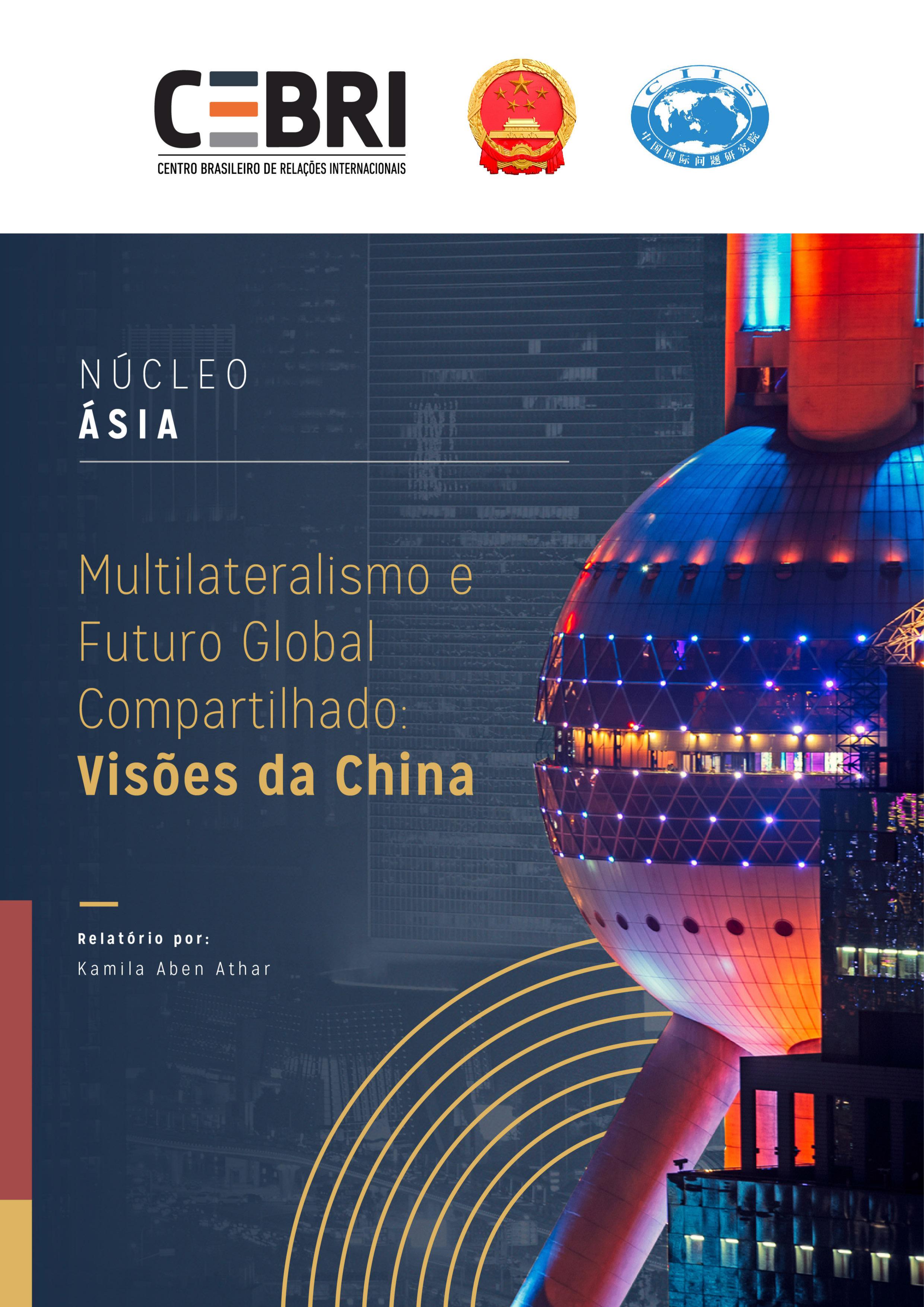Reports
Beyond the trade war: Made in China 2025, innovation and the 4.0 industrial revolution
- Asia
- 30 may 2018
At its seventh meeting, CEBRI’s China Analysis Group Meeting promoted insightful discussions on the characteristics of Chinese policymaking in science and technology, with particular emphasis on the formulation, implementation and global implications of the Made in China 2025 Plan. As such, in the context of the Fourth Industrial Revolution, discussions encompassed the global trend towards digitization and informatization in manufacturing, as reflected in Chinese efforts towards upgrading its industry. Ultimately, this would respond to the Chinese goal of advancing to higher stages in global technological value chains and ensuring self-sufficiency in high-tech sectors.
At its seventh meeting, CEBRI’s China Analysis Group Meeting promoted insightful discussions on the characteristics of Chinese policymaking in science and technology, with particular emphasis on the formulation, implementation and global implications of the Made in China 2025 Plan. As such, in the context of the Fourth Industrial Revolution, discussions encompassed the global trend towards digitization and informatization in manufacturing, as reflected in Chinese efforts towards upgrading its industry. Ultimately, this would respond to the Chinese goal of advancing to higher stages in global technological value chains and ensuring self-sufficiency in high-tech sectors.
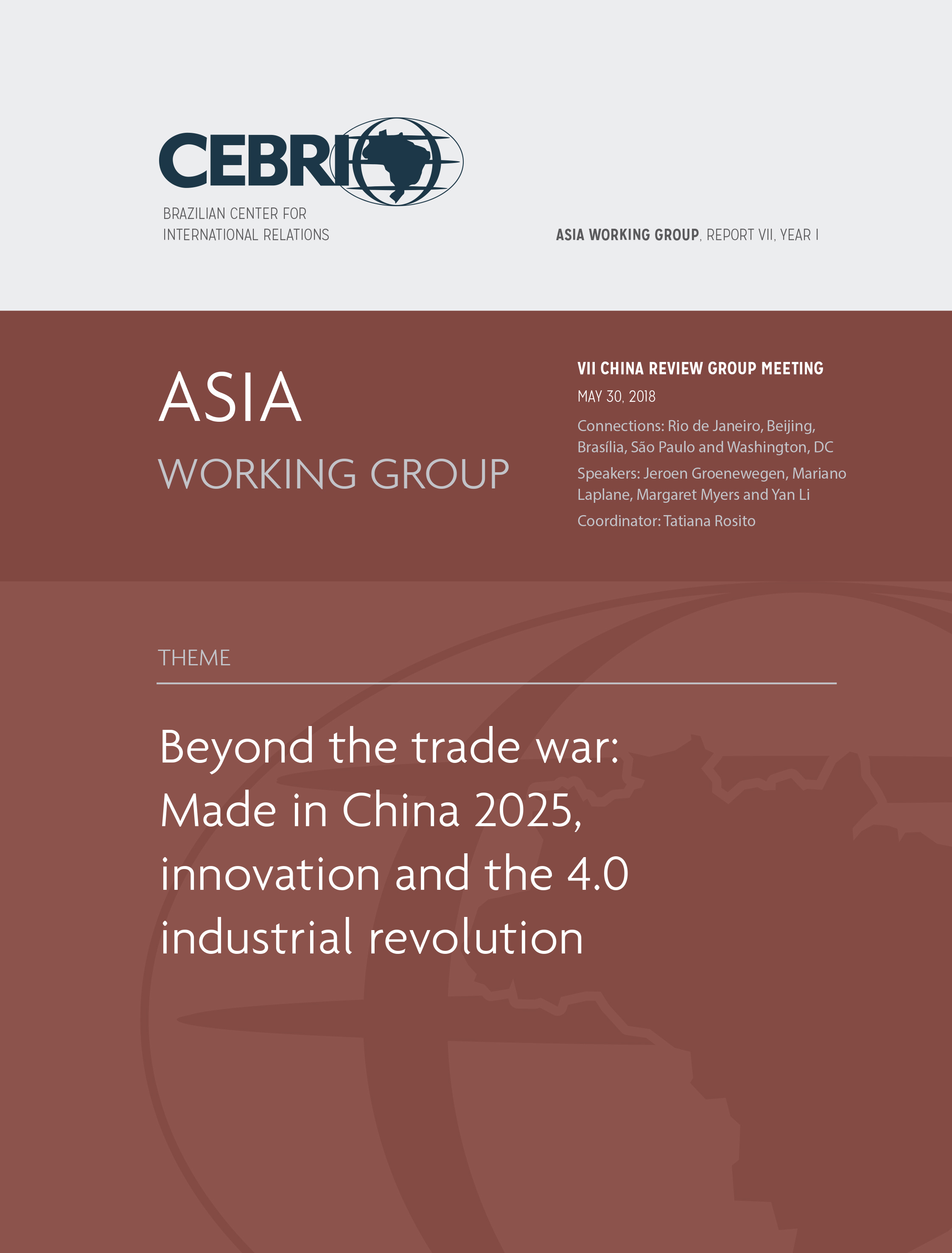






6932f633dad5f.png)
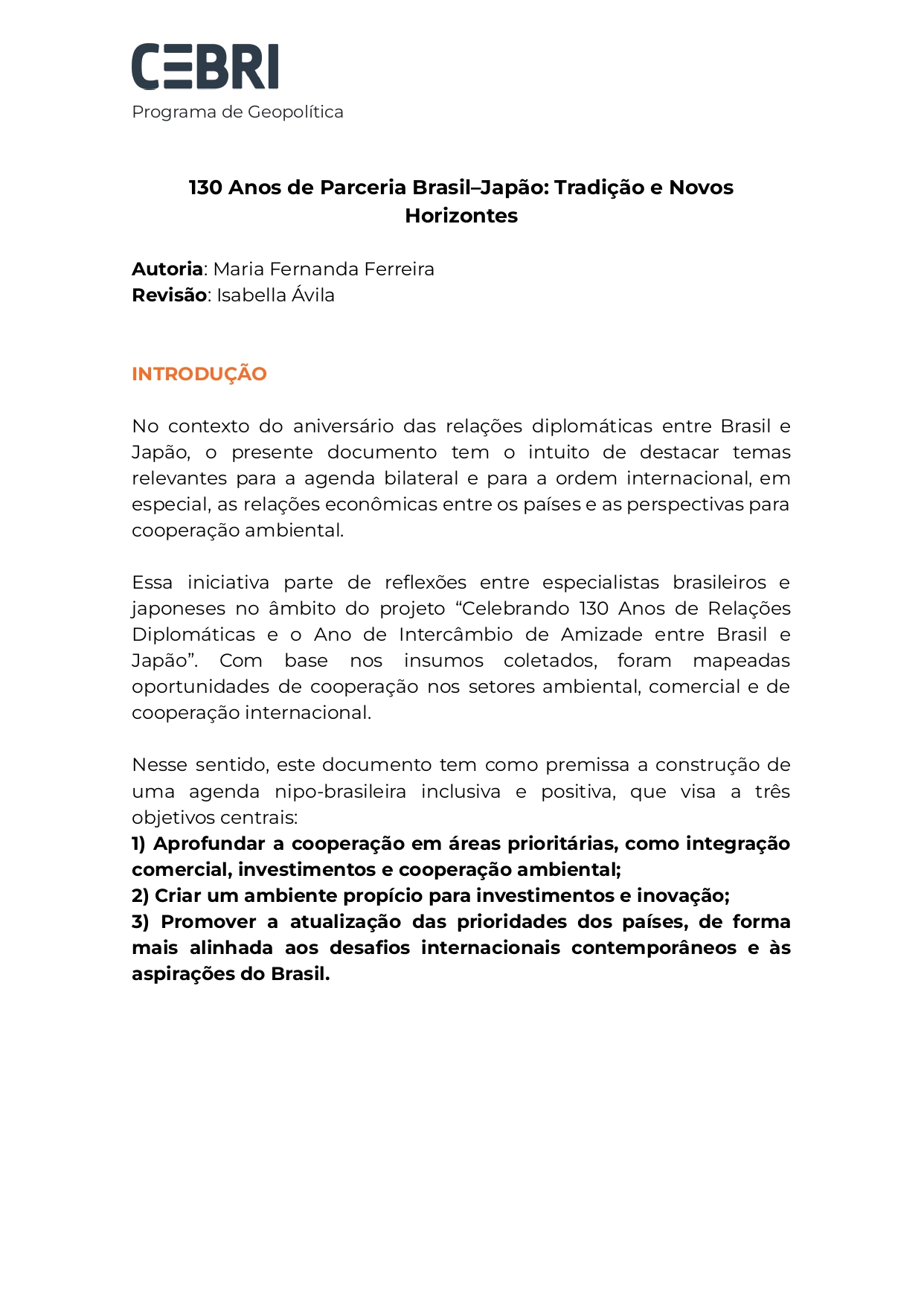

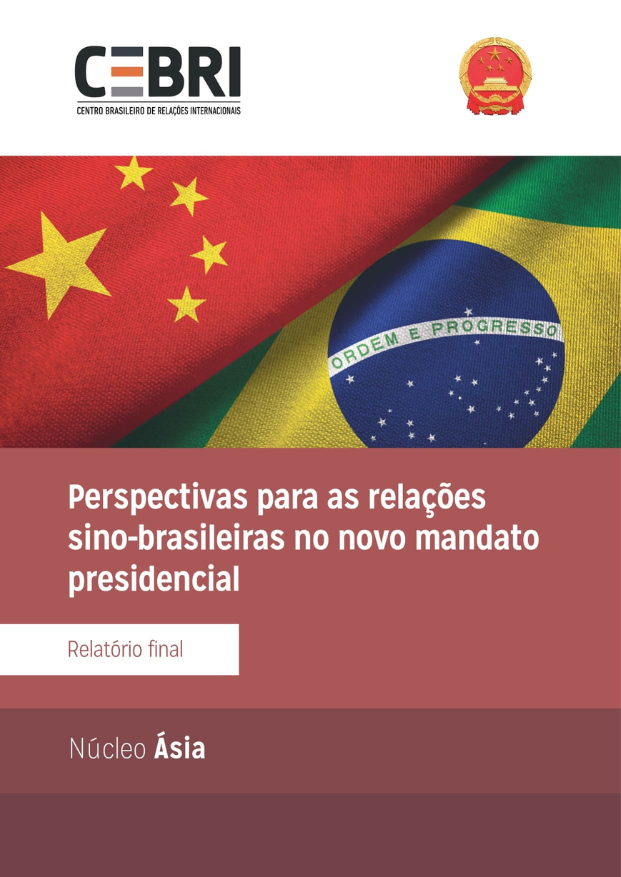
63dd462196071.jpg)

